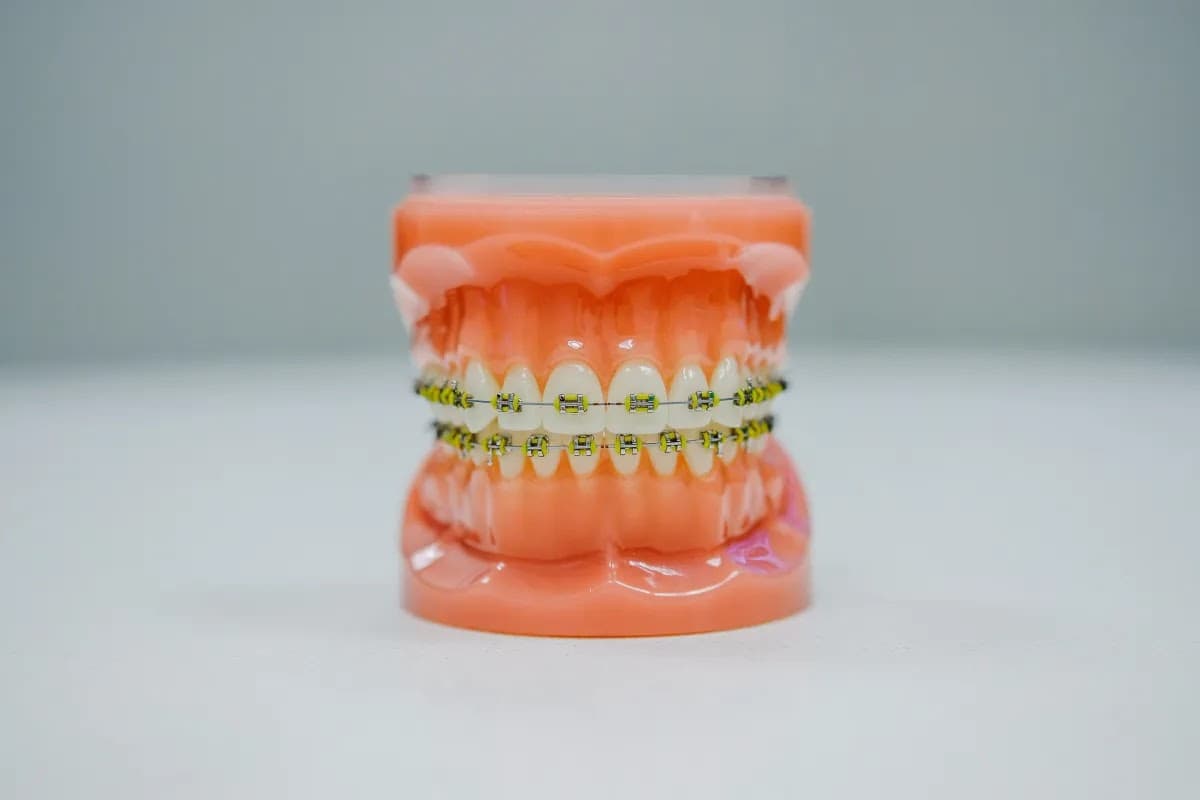Hypothyroidism And Snoring - zzzZZZ
Jul 27, 2024 12:00 AM
Relationship

Wellnession.com - The intricate connection between hypothyroidism and snoring introduces a nuanced dimension to the study of sleep dynamics within couples. Hypothyroidism, characterized by an underactive thyroid gland, has been identified as a potential contributor to the manifestation of snoring in individuals. This tandem presents a multifaceted interplay where thyroid dysfunction may influence respiratory patterns during sleep, resulting in disruptive snoring.
Understanding this correlation is paramount for couples seeking a comprehensive insight into sleep-related concerns. As partners embark on the journey of deciphering the implications of hypothyroidism on snoring, a collaborative approach toward diagnosis and management becomes crucial. This professional exploration not only seeks to shed light on the physiological intricacies of thyroid function but also underscores the importance of a holistic understanding of health dynamics within the realm of shared sleep experiences.
Table of Contents
Can Hypothyroidism Really Cause Snoring?
The nexus between hypothyroidism and snoring underscores a complex interplay of physiological factors that contribute to the manifestation of disruptive nighttime breathing patterns. Hypothyroidism, characterized by an underactive thyroid gland, may instigate alterations in metabolic functions and impact respiratory muscle tone.
| Also Read: Feeling Lonely After a Breakup |
How Do I Stop My Thyroid From Snoring?
The treatment of hypothyroidism and its associated snoring necessitates a systematic and individualized approach. In addressing hypothyroidism, the primary intervention involves hormone replacement therapy, wherein synthetic thyroid hormones are administered to restore optimal thyroid function.
This therapeutic measure aims to rectify the hormonal imbalances that contribute to hypothyroidism and, subsequently, alleviate associated symptoms, including snoring. Regular medical monitoring and adjustments to hormone replacement dosages are crucial to ensuring the efficacy of treatment.
Concurrently, managing snoring often requires lifestyle modifications such as weight management through a balanced diet and regular exercise. Additionally, positional therapy and the use of anti-snoring devices may be recommended to address specific factors contributing to snoring.
Collaborating with healthcare professionals, including endocrinologists and sleep specialists, is essential to tailor a comprehensive and effective treatment plan. By addressing both hypothyroidism and snoring in a coordinated manner, individuals can experience improved overall health and quality of sleep.
Are All Individuals With Hypothyroidism Prone to Snoring?
The propensity for snoring among individuals with hypothyroidism varies, and not all individuals with this thyroid disorder are necessarily prone to snoring. Hypothyroidism, characterized by an underactive thyroid gland, can contribute to alterations in muscle tone and metabolic functions, which may affect the upper airway and potentially lead to snoring.
However, the severity and manifestation of snoring are influenced by several factors, including the degree of thyroid dysfunction, overall health, and the presence of additional contributory factors. While snoring is a recognized symptom associated with hypothyroidism, it is essential to acknowledge the individual variability in its occurrence.
Some individuals with hypothyroidism may experience snoring as a notable symptom, while others may not exhibit this particular sleep-related issue. A comprehensive evaluation by healthcare professionals can help determine the specific factors contributing to snoring in individuals with hypothyroidism and guide appropriate management strategies based on individual health profiles.
Can Lifestyle Changes Help Reduce Snoring in Individuals With Hypothyroidism?
The impact of lifestyle changes on reducing snoring in individuals with hypothyroidism is a topic of consideration within the broader context of sleep health management. While addressing lifestyle factors may contribute to an overall improvement in sleep quality, it is important to note that the relationship between hypothyroidism and snoring is primarily influenced by physiological and hormonal factors associated with thyroid dysfunction.
Nevertheless, adopting healthy lifestyle practices can be a complementary approach to support sleep hygiene and minimize snoring. Maintaining a balanced diet, incorporating regular physical activity, managing stress, and avoiding excessive alcohol consumption are advisable measures. These lifestyle modifications contribute to general well-being and may positively influence sleep quality.
However, it is crucial for individuals with hypothyroidism experiencing persistent snoring to seek professional medical advice, as addressing the underlying thyroid dysfunction is paramount in comprehensive management. Healthcare professionals can provide tailored guidance on lifestyle adjustments and determine appropriate interventions to alleviate snoring symptoms in the context of hypothyroidism.
| Also Read: Soundproofing Neighbor Noise |
Are There Specific Risk Factors That Amplify The Connection Between Hypothyroidism And Snoring?
The interconnection between hypothyroidism and snoring is influenced by a multifaceted interplay of physiological factors, and while there are no specific risk factors that universally amplify this association, certain variables may contribute to an increased likelihood of snoring in individuals with hypothyroidism.
Factors such as age, gender, body mass index (BMI), and the presence of additional health conditions can play a role in accentuating the connection between hypothyroidism and snoring. For instance, obesity, which is often associated with both hypothyroidism and an increased risk of snoring, can exacerbate the structural and functional changes in the upper airway.
Additionally, the progression of thyroid dysfunction, the duration of untreated hypothyroidism, and the presence of comorbidities may impact the severity of snoring symptoms. A comprehensive assessment by healthcare professionals is essential to identify and address these contributing factors, allowing for a targeted and individualized approach in managing snoring within the context of hypothyroidism.
Can Untreated Hypothyroidism Lead to More Serious Sleep Disorders?
Untreated hypothyroidism can potentially lead to the development or exacerbation of more serious sleep disorders, extending beyond the commonly associated symptoms such as fatigue and snoring. The thyroid hormone plays a crucial role in regulating various physiological processes, including those that govern sleep-wake cycles and overall sleep architecture.
Persistent thyroid dysfunction, if left unaddressed, may contribute to disruptions in circadian rhythms and lead to conditions such as insomnia or hypersomnia. Moreover, untreated hypothyroidism has been associated with an increased risk of obstructive sleep apnea (OSA), a serious sleep disorder characterized by repeated episodes of breathing cessation during sleep.
OSA, when coexisting with hypothyroidism, can further amplify the complexities of sleep-related issues and pose potential health risks. Given the intricate interplay between thyroid function and sleep regulation, seeking timely medical intervention for untreated hypothyroidism is imperative to mitigate the risk of more severe sleep disorders and ensure comprehensive management of associated health concerns.
Where Can Individuals Find Reliable Information and Support For Hypothyroidism And Snoring?
Reliable information and support can be obtained from healthcare professionals, endocrinologists, and sleep specialists. Additionally, reputable medical websites and patient advocacy groups can serve as valuable resources for individuals seeking information and guidance on hypothyroidism and its connection to snoring.
Conclusion
The association between hypothyroidism and snoring underscores a complex interplay of physiological factors within the realm of sleep health. The underactive thyroid, characterized by alterations in muscle tone and metabolic functions, may contribute to the manifestation of snoring as a notable symptom.
It is imperative to recognize that while snoring is a potential consequence of hypothyroidism, individual variability in its occurrence exists. The severity and persistence of snoring are influenced by factors such as the degree of thyroid dysfunction, overall health, and the presence of additional contributory elements. Lifestyle modifications, such as maintaining a balanced diet and regular physical activity, can be considered as supportive measures to enhance overall sleep hygiene but should be complemented by professional medical guidance.
Importantly, untreated hypothyroidism may not only contribute to snoring but can also lead to more serious sleep disorders, emphasizing the significance of timely diagnosis and intervention. Collaborative efforts between individuals, healthcare professionals, and specialists are essential to comprehensively address the intricacies of hypothyroidism and its impact on sleep patterns, fostering optimal well-being and sleep quality.








